
Hey power pop, indie rock fans. In support of my new third album, The Breakers, coming this fall, I’ve recently released a couple of “hit” singles with my new band that are now streaming on your favorite music store:
In case you missed it, earlier this year I released Fancy Hotel and Word Games, all streaming on all major music stores (including Amazon).
Thanks for listening, liking, following, and sharing my music. If you’re local, my supporting band The Breakers and I are playing at the famous Velour in Provo on Thursday, August 24 at 7:30. Hope to see you there! 🤘💪🙏
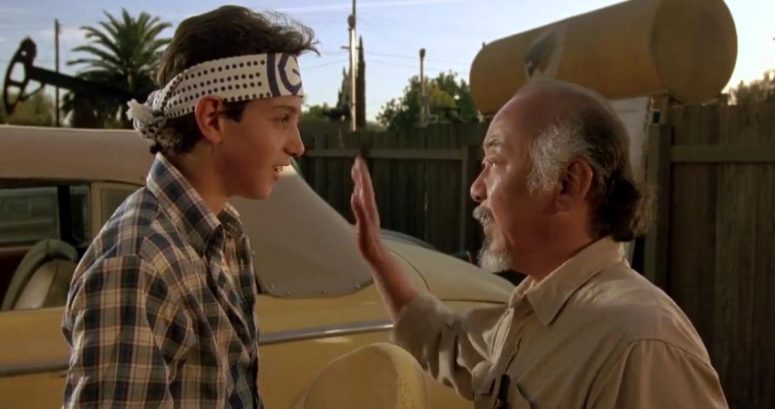
Columbia Pictures
Humans are easily distracted by a lot of things.
Smartphones, gossip, social media, substance abuse, endless email, mindless web browsing, too much TV, video games, unnecessary meetings, bargain hunting. When done in excess, these activities rob you of energy, productivity, a willingness to serve, and ultimately fulfillment.
It doesn’t have to be that way, however. Here are five ways to rig your environment for greater success and happiness: Continue reading…

Courtesy Shutterstock
Once upon a time, I played adult fast-pitch baseball for several years in my late 20s. It was incredibly intimidating, since I played against several ex-major leaguers and college players. Some guys threw in the upper 80s, even, which is unnerving at best and scary as hell at worst!
Anyways, I started at right field, which baseball fans know is where you put the worst fielder. But I usually batted third, fourth, or fifth, which is where big hitters usually line up.
Only problem was, I wasn’t a big hitter. Why did my coach put me there?
Because I had one goal—get on base. What’s the easiest way to do that? Hit singles or walk. So that’s what I did.
I hit a lot of singles back then. Walked a lot too. I never swung for the fences and always made the pitcher work for three strikes, which is very hard hard to do at amateur levels, especially if the hitter isn’t swinging. So I only swung at strikes.
Halfway into the season, my teammate Russ pulled me aside and asked, “Have you looked at your online stats?”
“No,” I replied. As a rookie, I didn’t even know that was possible. “Well you’re leading the team in RBIs (runs batted in) and have an on-base percentage over 70%. NICE WORK!”
That praise and realization felt good. But it also reminded me of an important life lesson: thinking small often leads to big results. Since small ball is boring and unglamorous, however, not many people engage in it. Big ball, you see, gets most of the fame and attention.
Obviously, big ball works too. Maybe just as much, if not more, than small ball. But big ball is harder to pull off. It requires more skill and God-given talent. I’m often short on that.
So I in life, business, and baseball, I usually choose small ball.
PS—Small ball works in all aspects of life and sport, not just baseball. For example, Italy plays some of the smallest, most boring soccer you will ever see. But they are tied for second for most World Cups. Because small ball works.
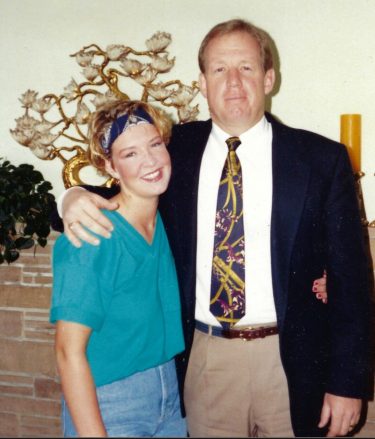
My dad with my oldest sister Cami
Dear, Dad.
Although you’re technically dead, I still believe you’re alive somewhere. After all, you taught me to believe in an afterlife, and I still do. So thanks for putting me on the path of faith, moral redemption, and hope after death. And for doing it in a way that was never dogmatic but wise and open to the possibility that you didn’t really know. I respect that immensely.
It’s been two years since you died. I read years ago that it’s healthier to say “die” instead of the more ambiguous “passed” or “no longer with us.” So if I sound harsh, it’s for good reason. No sense beating around the bush. You’re dead. I miss you. End of story.
I don’t know if you can hear this. I’m guessing not, because I’m not comfortable with the idea of being watched, listened to, or otherwise spied on by the deceased. We all need our privacy, right!? But I hope if there is a way, you still get this message. Continue reading…
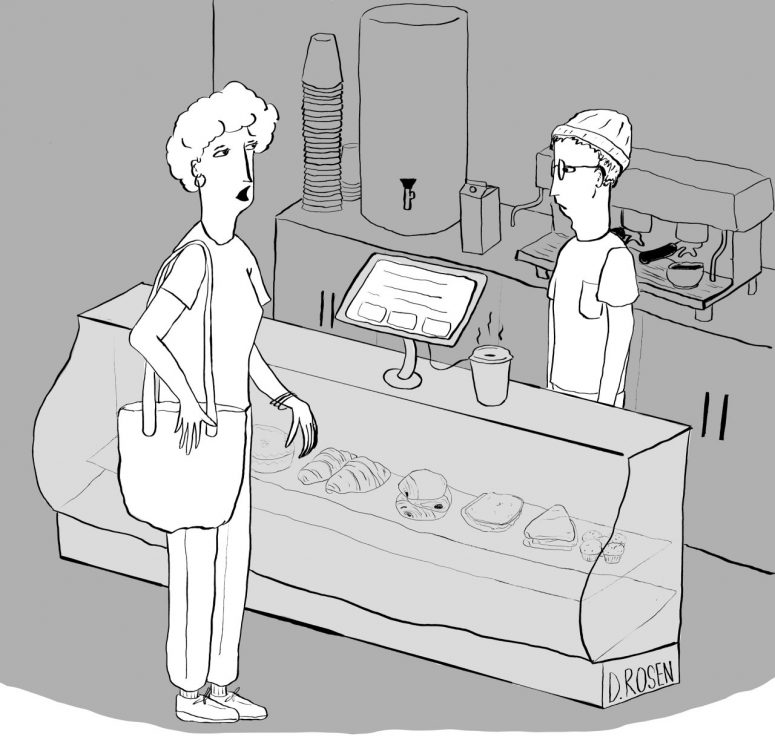
“Which button lets me quickly clear the screen after I don’t leave a tip?”—New Yorker
The Associated Press reports, “As more businesses adopt digital payment methods, customers are automatically being prompted to leave a gratuity — many times as high as 30% — at places they normally wouldn’t. ‘The onus should absolutely be on the owners,’ one barista said. ‘But that doesn’t change overnight. And (tipping) is the best thing we have right now.'”
While I’m happy to tip for sit-down restaurants and drivers, I feel no guilt clicking “no tip” for counter service or other non-customary situations. If consumers stand their ground, underpaid employees will eventually bolt for better paying jobs, and underpaying owners will be forced to raise their wages.
Am I wrong?
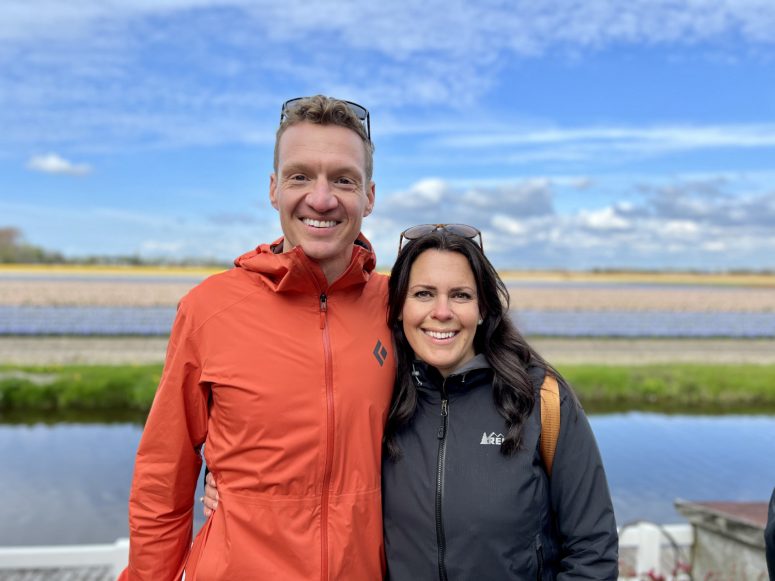
Here are my recent clippings—thanks for reading:
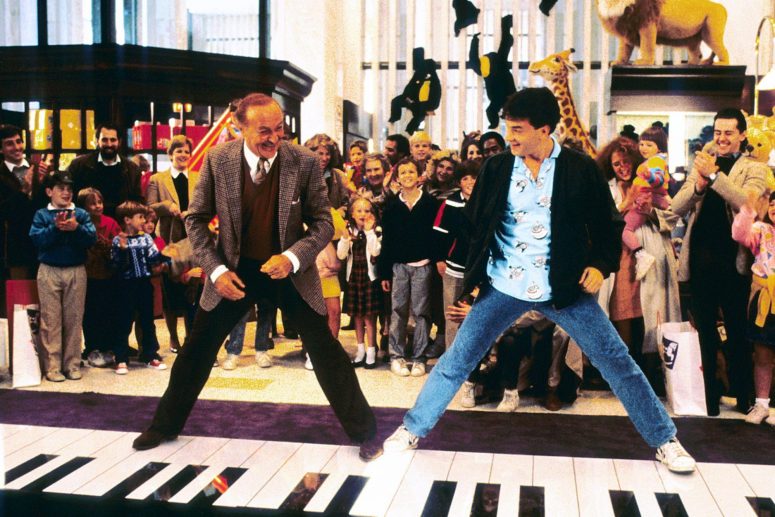
Courtesy 20th Century Fox
$375 an hour is a lot of money. It was even more money 20 years ago when a bougie investment bank paid me that to share my honest opinion with some of its biggest customers.
Many people don’t know this, but I got my start in writing covering video games of all things. It was the ideal subject for an early twenty-something like me. I threw myself into the “work,” was one of the most prolific tech bloggers for AOL (aka America On-Line), and had a blast attended game conferences, interacting with readers, and crafting sentences for a living. It was a lot like Tom Hanks character from Big. I was getting paid to play with toys and critique commercial art.
The pay wasn’t great. But when paired with magazine freelancing, it was enough to support my small, apartment-living family. I’m smiling right now just thinking about it. Continue reading…
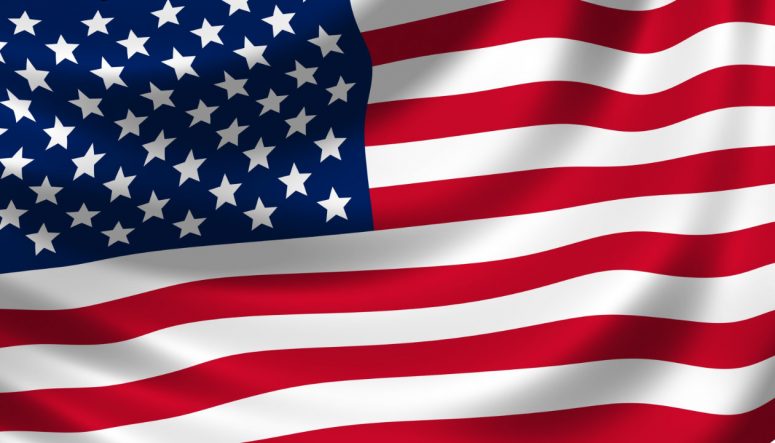
Happy birthday, America!
I love how you’re home to the friendliest and most generous people in the world. I like how you cheer on amateur athletes (even youth ones) almost as much as professional ones. I admire how you champion democracy, protect the high seas from pirates, and smoke less than any other developed country on Earth.
Granted, you have an obesity problem, export many of the world’s biggest vices, and are often ungrateful. But as the inventor of electric guitars, rock ‘n roll, and blue jeans, I can’t stay mad at you.
Here are 35 other amazing things you invented over the last quarter millennia: Continue reading…

Courtesy Shutterstock
Improving the world might seem like an impossible task. But it’s actually quite simple, if you know where to look. Slow-going—no doubt. But simple. Here are five ways to change the world, starting in the very village you live in:
- Keep learning. To change the world, you must first change yourself. Learning is the first step in doing this. Sometimes that includes formal education like grade school or college. But it mostly involves a curious mind, asking lots of questions, talking with people from different cultures, seeking answers to questions that inspire you. To be clear, reading news is not learning—it’s staying informed, which is much less important than learning. So focus on learning. Need help? Here are 13 things I learned from the world’s greatest thinkers and 5 things dance class taught me.
- Practice gratitude. Gratitude is the secret to happiness. It’s why so many people in Africa are the quickest to smile whereas depression in wealthy countries is at record highs. Point being, gratitude changes our perspective of the world, and gives us hope to keep learning and growing. Better yet, gratitude is contagious. The more blessings you count, the more you see how blessed you really are. Need a good place to start? Here’s how to write a gratitude letter.
- Spend less time online and more time in-person. I wrote an entire book on the benefits of doing this. In short, spending more time online denies your ability to make meaningly social connections. And no, online social interactions are not meaningful. They are an illusion. To overcome this (and the related problem of FOMO), commit to spending time in-person with friends and family over meals, daily activities, and phone free periods (especially on mornings, nights, weekends, and during meals). More than anything, living offline lets you live in the present more, which is the only place you can even change the world.
- Be kind to everyone you interact with. That inlaces people that look and act like you. But it also includes people who need extra love, such as these 8 especially vulnerable groups. Not only is it this the right thing to do, it connects us to one another and lifts all boats like a rising tide. If you encounter someone who is rude or unkind, simply ignore them or gently remind them they are being rude before walking away.
- Donate your time and money. It’s easy to feel powerless when it comes to changing the world. But in addition to the above four ideas, donating your time and money to worthy causes is a proven way to make a difference. As a bonus, volunteering boosts our productivity, self-worth, and happiness. And it reminds us that someone always has it harder than us, that we can make a difference, and that together we can make it happen. So please donate your time and money.
Let’s do this!—Blake Snow
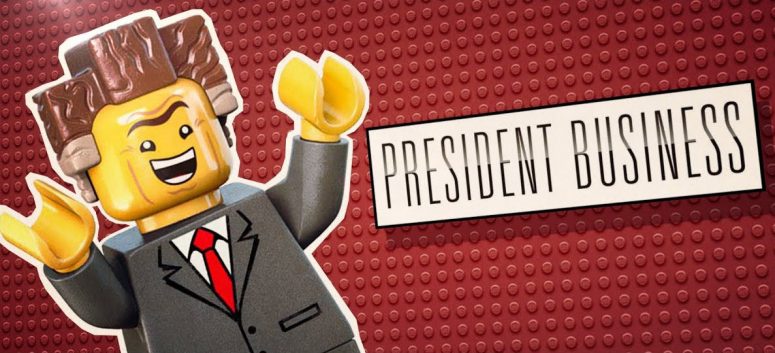
I was working with a client yesterday (Hi, Mike!) on some final edits of a publication-ready story. I really liked how the article turned out. But just as it was about to leave the door, Mike wanted to add the word “business” in front of “performance” in an early sentence, as in “business performance,” instead of just “performance.” I disagreed, because “companies” were the subject of the sentence, so the extra word wasn’t needed. That’s because most (if not all) readers will rightfully assume for-profit companies aren’t in the business of “philanthropic” performance or some other kind of performance. It’s all business all the time for them.
This isn’t the first time I’ve encountered keyword stuffing while working with clients. It certainly won’t be the last. While “search engine optimization” has made keyword stuffing worse, I believe there is another root cause of word stuffing. Executives, marketers, and copyrighters spend the majority of their week working hard to build and promote their products and services. For them, it’s very important work. So they often view the exercise of writing as the greatest, latests, and sometimes last chance to tell their story. So rather than let their sentences breathe and sound human, they try to add every extra word they can to get the story straight. Continue reading…
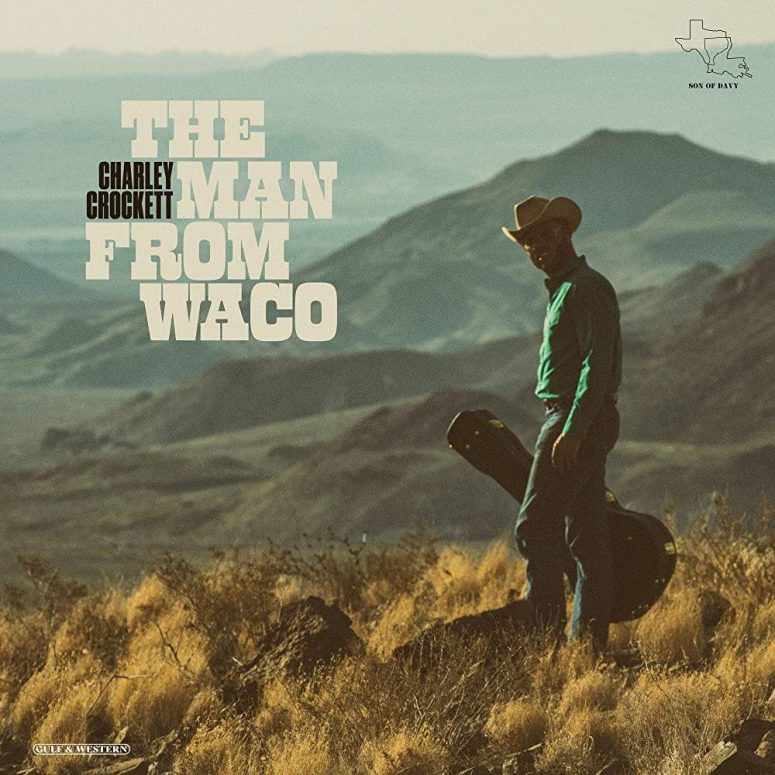
The Man From Waco by Charley Crockett is a masterpiece of old Western Country with heavy Marty Robbins, Johnny Cash, Charley Pride, and even Jimmy Buffett vibes. I love it!

Courtesy Shutterstock
Jimmy Buffett once sang, “Changes in latitudes change attitudes.” I mostly agree, although I’d include longitudes in the lyric if it rhymed. Here’s why.
Once while rafting through the Costa Rican jungle on the beautiful Pacuare River, my group rested halfway at this extraordinary lodge. On arrival, I beelined to the first hammock I saw overlooking the area. While swaying to and fro, I watched and heard the top-rated river do its thing. Enveloped in greenery, I spotted a hanging bridge off in the distance.
I’m rafting in the freaking jungle, I said to myself, not believing my luck. Moments later, my guide approached and commented on the impressive view as she had probably done a hundred times before. She asked where I was from. “Utah,” I replied, which excited her. “I just returned from Arches and Canyonlands National Park two weeks ago!” she exclaimed. “I can’t wait to return to Zion and Bryce next year.”
Oh, the irony, I thought. The grass is always greener. Or in the case of my Costa Rican guide, the red rock desert is sometimes more appealing than the lush, green and mountainous rainforest I was enjoying at that very moment.
Continue reading…
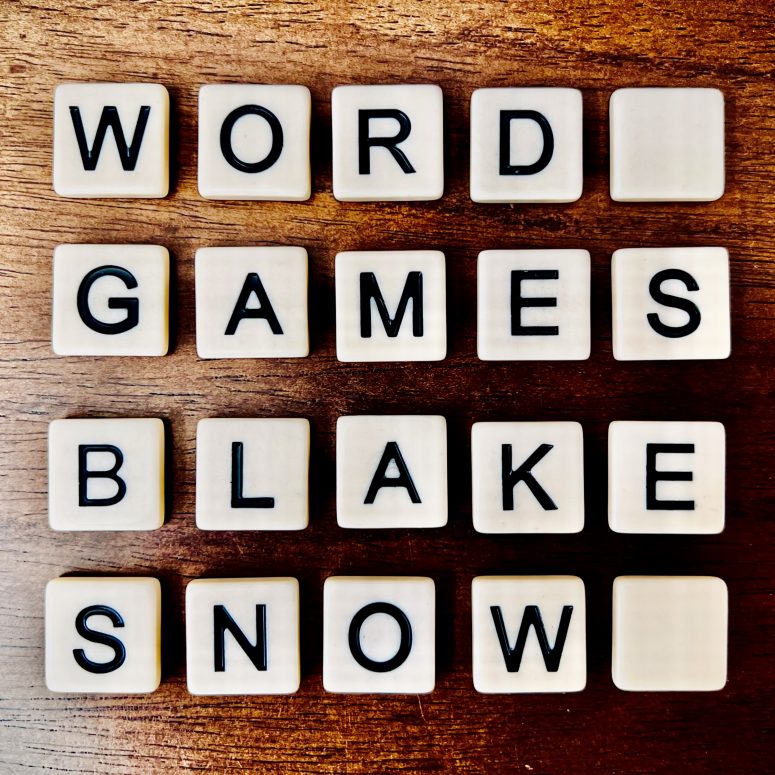
Stream (or download) on:
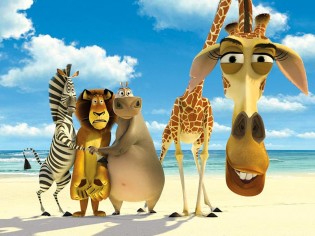 Like many things in life, the island of Madagascar is a mystery. A mini continent off the southeast coast of Africa, it features all kinds of crazy animals that shouldn’t be there.
Like many things in life, the island of Madagascar is a mystery. A mini continent off the southeast coast of Africa, it features all kinds of crazy animals that shouldn’t be there.
How did they get there?
Since there’s no evidence of a land bridge, scientific consensus says that animals from Africa suddenly got the urge to hit the open seas on self-made rafts and hope for the best, even though currents and prevailing winds blow away from the island.
I imagine the sporadic migration of seafaring land animals went something like this:
Continue reading…
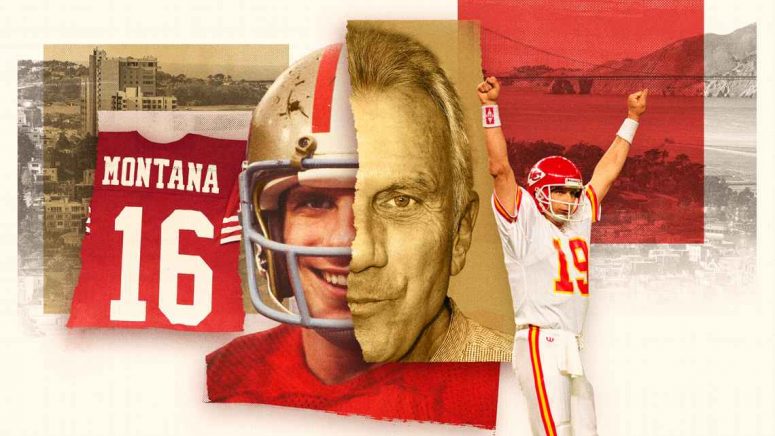
- Joe Montana was here. “Like a lot of children from his neck of the woods, raised on the dueling icons of the crucifix and the smokestack, he’s a complex mix of work ethic and guilt.”
- The world’s #1 million dollar violin doctor. “Making that guitar had a big impact on me. I didn’t grow up in a musical family, but I realized I wanted to help musicians. I get that same excitement working with classical violinists.”
- ChatGPT is the blurry JPEG of the internet. “Starting with a blurry copy of unoriginal work isn’t a good way to create original work. If you’re a writer, you will write a lot of unoriginal work before you write something original. And the time and effort expended on that unoriginal work isn’t wasted; on the contrary, I would suggest that it is precisely what enables you to eventually create something original… So just how much use is a blurry JPEG, when you still have the original?”
- Skiing has gotten worse. Why do we still go? “We do a lot for this sport, and yet it still delivers, at a payoff ratio that defies logic or rationality. One guy told me that a single untouched powder run last season made all the other lackluster snow-free days worth it. The math of skiing makes no sense to anyone but a skier.”
- Crime of the centuries. Tomb raiders, shady dealers, complicit museums, and the ultra rich fuel the stolen antiquities trade.
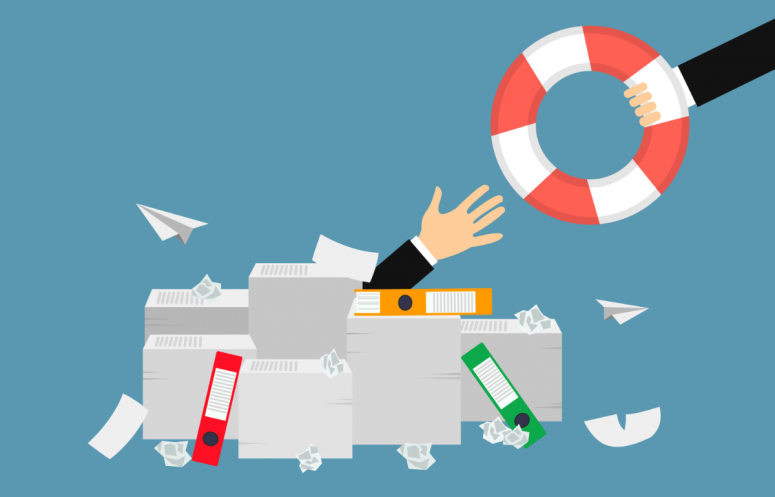
WARNING: This is a sales call 😀
I normally don’t blog about anything but good free content. But here we are. It’s for good reason, though. Pinky swear.
Not long ago, a couple of clients (one tech, one consulting) independently approached me about a monthly retainer to help them with ongoing strategic and last-minute writing and editing projects as needed. That includes high-impact and pre-planned articles and editorial planning, but also unforeseen writing decisions and editing choices that need an outside pair of eyes to review and validate (that’s me!)
Both projects have turned out really well. So much so that I’ve decided to productize them as a “Editorial Lifeline.” Basically this new tool gives content, communications, and thought leadership executives on-call access to a seasoned writer of 18 years, who’s written for hundreds of fancy publications and Future 500 companies.
With the editorial lifeline product, subscribers get:
- A mix of regular short or long-form articles delivered monthly
- Strategic guidance for ongoing editorial decisions, big or small
- Rapid turnaround and response times to meet fast deadlines (aka “lifelines”)
- Fixed monthly/annual cost to stay under budget
- Full and updated access to my workbook: What 18 years of writing have taught me
Of course, I’m still committed to writing and advising on one-off custom articles or special editing projects. But I’m confident a lot more companies could benefit from a similar “writing lifeline.” If you or someone you know would like to learn more, please email me: inbox@blakesnow.com
Thanks for reading. Now back to our regularly scheduled programming…

The United States leads the world in weather catastrophes, reports the Associated Press. The result is a whole lot more tornados, hurricane, flash floods, droughts, wildfires, blizzards, and sever thunderstorms when compared to other continents.
We can blame our unlucky geography for this, specifically these five things:
- We are flanked by the two biggest oceans. This really messes with our air conditions.
- A third “ocean basin” lies beneath us. It’s called the Gulf of Mexico and it further upends our overhead atmosphere.
- The Rocky Mountain west. These mammoths trap air, hold it, which causes storms to build then explode as they move east.
- Jutting peninsulas like Florida. We’d have a lot fewer hurricanes if it weren’t for this landmass trap more air.
- Clashing storm fronts along the jet stream. When combined, this further brews nasty weather.
And there you have it. Land of the free. Home of the brave. Leader of the free world. And the nastiest place for inclement weather. God bless the USA.
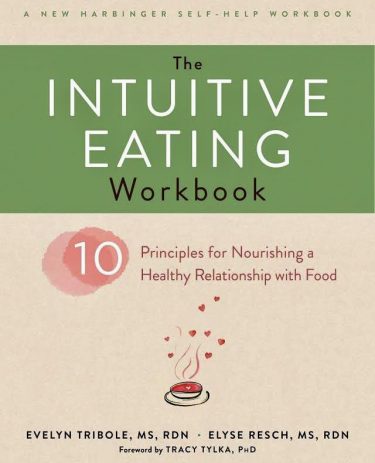 After recently learning that a family member was suffering from an eating disorder, I read Intuitive Eating, aka “The Gold Standard For a Healthy Relationship with Food.” I really appreciated the no-nonsense advice and wanted to summarize its 10, medically backed strategies for a sustainable diet:
After recently learning that a family member was suffering from an eating disorder, I read Intuitive Eating, aka “The Gold Standard For a Healthy Relationship with Food.” I really appreciated the no-nonsense advice and wanted to summarize its 10, medically backed strategies for a sustainable diet:
- Reject dieting (no counting calories)
- Honor hunger (it knows the right amount)
- Make peace with food (give yourself unconditional permission to eat)
- Challenge the food police (ie “protein is the best food group”)
- Feel your fullness (listen and ask yourself if you are comfortably full)
- Discover the satisfaction of eating (which naturally causes us to eat less)
- Cope with your feelings without using food (stay away from food until feeling is managed)
- Respect your body (get rid of scale, don’t be overly critical about its shape)
- Exercise: feel the difference (focus on how you feel working out, not calorie burning)
- Honor your health with gentle nutrition (make food choices that make you feel well—it’s what you eat over time that matters.)
Brilliant!
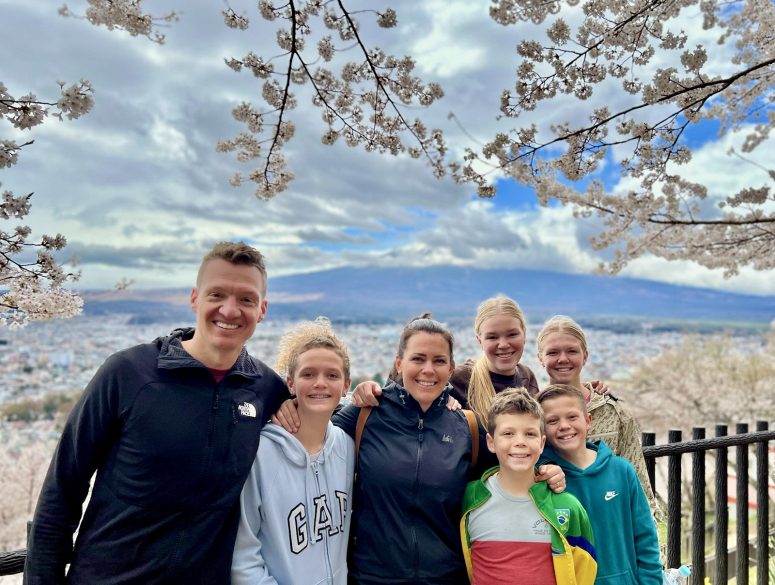
Here are my latest travel dispatches for Paste Magazine and Lonely Planet:

The cinematic offspring of Princess Bride plus Guardians of the Galaxy with a hint of Bill & Ted’s Excellent Adventure. Bonus points for the Tame Impala credit song. I highly recommend it. ★★★★☆

My daughter recently asked how someone gets rich. Before I share my answer, it’s important to distinguish rich from wealthy (and upper middle class).
Rich is having a high income, typically north of $300,000 a year in America, regardless of debt. Wealthy is possessing a large amount of money, property, assets, savings, and/or investments relative to debt (aka “high net worth”).
For reference, the lower economic class makes less than $50,000 a year; middle class between $50-150k, and upper middle class between $150-300k. Super rich (just 1% of Americans) make half a million a year or more.
Depending on how fast you spend money, it’s possible to be “rich but broke.” It’s also possible to become wealthy over time without ever being technically rich in any given year. And depending on your lifestyle, where you live, and your family status, it’s possible to live rich and/or approach wealth without hitting those exact numbers.
That said, there are five proven ways to make a lot of money. They are as follows: Continue reading…
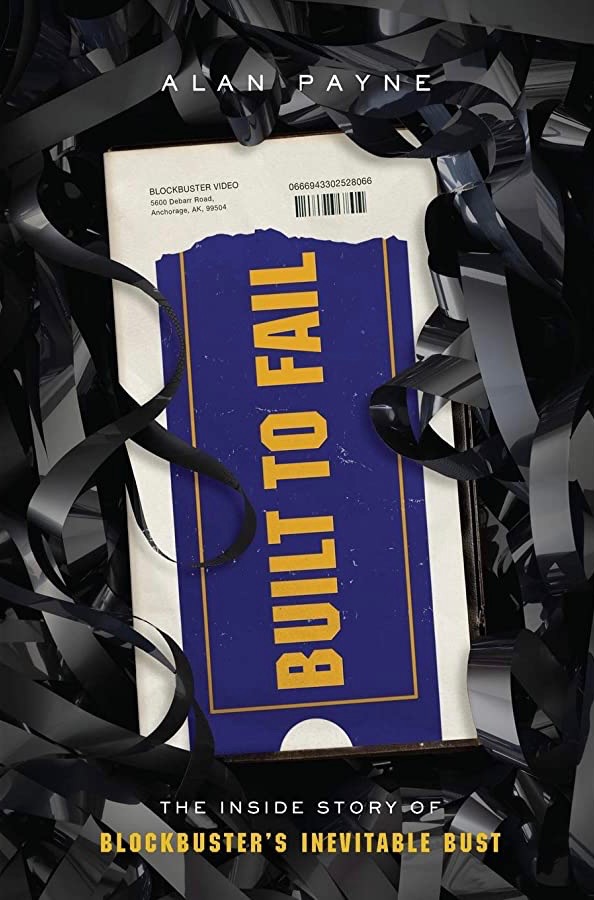
Insightful book by franchise owner Alan Payne that argues Netflix wasn’t the problem since Blockbuster was self-inflicting wounds a full decade before streaming took over. I enjoyed the book and suspect those who lived through it would too. ★★★★☆
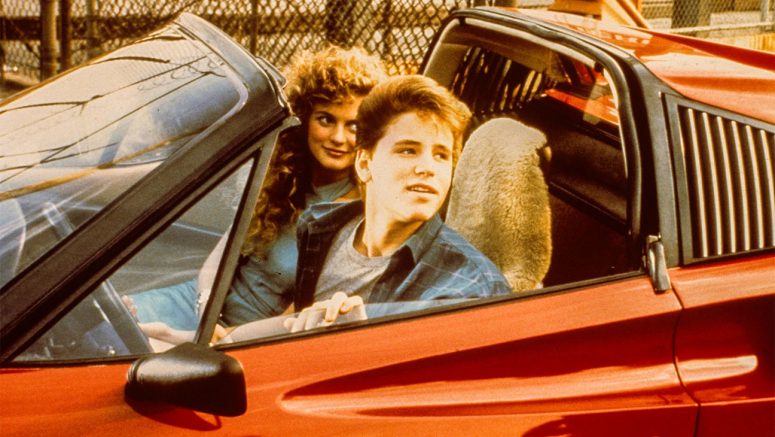
To young, developing minds, social media can be just as harmful as underage drinking, driving, and firearm use. At least that’s what many experts told me while researching Log Off: How to Stay Connected after Disconnecting. Having witnessed the declining mental health and fortitude of children in recent years, I believe it.
But it’s not just children that are suffering and social media isn’t the only unregulated problem. Smartphone, internet, and online gaming use in general can be just as toxic, especially for children and upwards of 50% of American adults (myself included). Continue reading…

Green—Ireland’s been doing it since well before it was a buzzword. And not just for one day each spring in celebration of its patron saint. “In Ireland, everyday is bathed in green,” asserts the country’s visitor’s bureau. That’s no exaggeration. Thanks to heavy precipitation and its mild climate (caused by warming ocean currents), The Emerald Isle is a scientific fact.
It’s also a popular place to visit. When considering a trip to this photogenic and evergreen beauty, forget luck and consider these worthy itinerary entries. Continue reading…
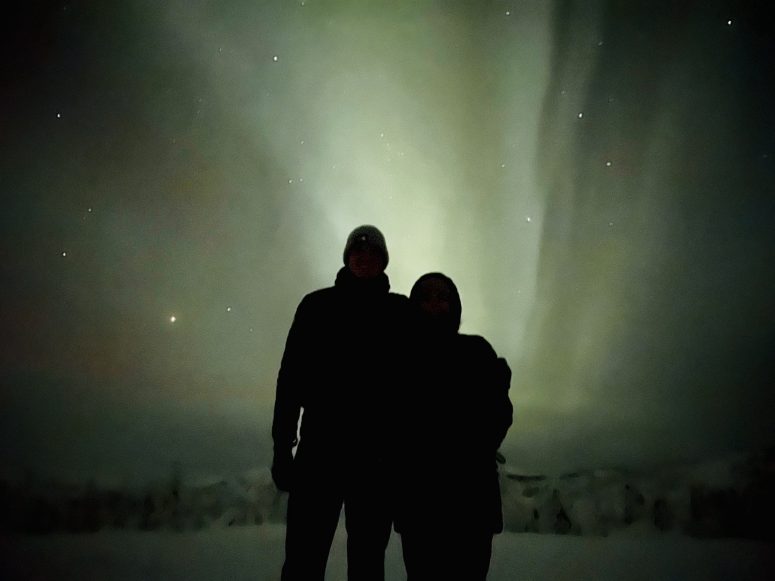
Courtesy Blake Snow
My latest for Paste Magazine: “You need three primary ingredients to really see the Northern Lights: Proximity to the North Pole, maximum darkness, and clear skies. Fairbanks, Alaska has all three and more, making it one of the best places in America (if not world) to see the elusive Aurora Borealis.
“But Fairbanks features a lot more than just shimmering ribbons of light swathing across the northern night sky. On a recent bucket list trip with my wife, I braved the coldest city in America to delight in dog sledding, hot springing, arctic snowmobiling, and even reindeer walking.
“Before following suit, here’s what you need to know.” Continue reading…

Courtesy Shutterstock
I recently watched two documentaries that left me shrugging.
The first was a an hour-long report on the lack of truck drivers. Basically the filmmakers openly wondered about how to correct the truck driver shortage. They never acknowledged that everyone’s packages are still being delivered. And they offered no answers to the proposed problem, even the dead-simple one that capitalism is really good at solving (i.e. paying more) for talent shortages.
“This isn’t my and/or society’s problem,” I remarked to my wife afterwards. It’s Amazon’s, Walmart’s, and anyone else who heavily depends on shipping. Let them figure it out. With trillions of dollars at stake, they’re highly motivated to do so. No need to worry. Next!
The second documentary openly wondered about what to do about rising temperatures at our Southern Border, which are sadly killing a growing number of immigrants. While I appreciate the documentary’s concern, the filmmakers implied this was society’s problem to fix. And not by reversing climate change, mind you. Rather, the government should do something to help migrants withstand hotter temperatures as they sneak into America, the documentary asserted.
This too, left me shrugging. Maybe just put up signs warning people who exercise free will of the heightened temperature risks and call it a day? Or trust that migrants will increasingly make the attempt during cooler winter temperatures. They have brains too, ya know.
I don’t mean to be insensitive, but the level of distrust for the systems that are actually making the world a better place surprise me.
The world is getting better. Maybe not as fast as you like, but it’s getting better. And there’s no evidence to suggest that trusting in the system actually hinders progress.
You can have both trust and progress. The two aren’t mutually exclusive. In fact, humans are very good at building systems of trust that work more than they fail… while making progress. Trust in that.
Next!
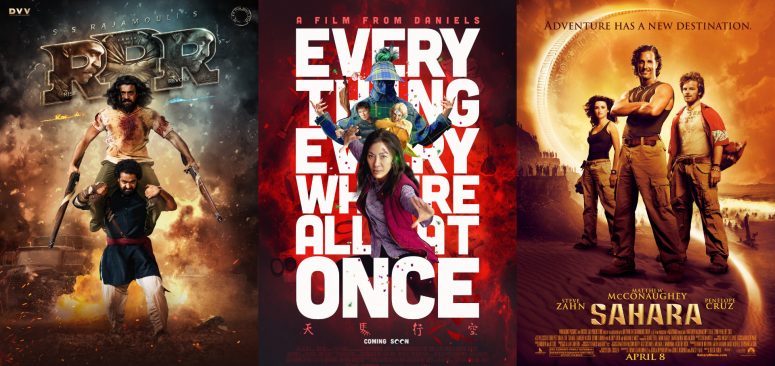
After rewatching Indiana Jones with family recently, my wife and I screened a handful of other adventure movies we’d never seen before.
Two are Oscar nominees and absolutely crazy fun. One (RRR) breaks into random music videos at times and the other (Everything Everywhere) made me cry by the end. The other is 20 years old and nearly as entertaining as Top Gun 2. I award all three 4 out of 5 stars and highly recommend them.
As for upcoming movies, I have the following on my calendar: 65, Dungeons & Dragons, Air, Guardian 3, Indiana Jones 5, Mission Impossible 8, and maybe Oppenheimer. It’s finally shaping up to be a year where I’m looking forward to more than just a couple of new movies.

Courtesy Blake Snow
My latest for Paste: “Sometimes a country is more defined by what it doesn’t have than what it does. Nicaragua is one of those countries.
“While it doesn’t have the shiny amenities, rave reputation, and tourism machine needed to attract a high volume of visitors, Nicaragua also doesn’t have the crowds, beaten paths, and routine experiences you’ll increasingly find elsewhere. Instead, it is refreshingly undeveloped. Because of this, Nicaragua is notably more affordable when compared to other Central American hot spots (including neighboring Costa Rica, which it definitely resembles).“
Continue reading…
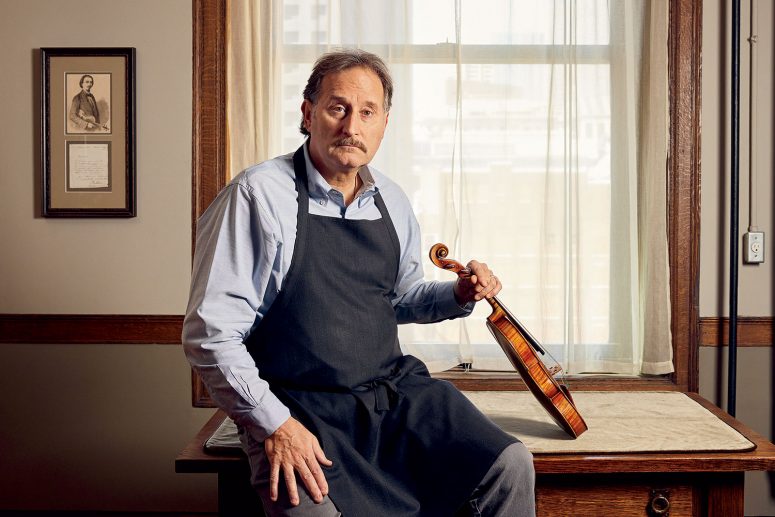
Courtesy Chicago Magazine
We wouldn’t have music in the world if it weren’t for the master wood makers and instrument caretakers like John Becker, whose world renowned and million dollar restorations were recently profiled by Chicago Magazine: “Making that guitar had a big impact on me. I didn’t grow up in a musical family, but I realized I wanted to help musicians. I get that same excitement working with classical violinists.” Love it.
Until I get around to writing a condensed, more interesting story, here’s a chronology of mostly personal events:
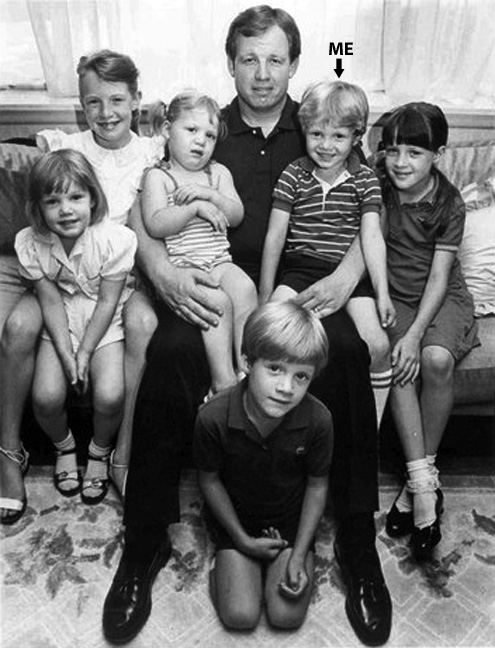
1979. Born in Moscow, Idaho to goodly parents named Brent and Cathy Snow as the fourth child of six and second son in the family. Moved to Oklahoma one month later.
1985. Started my formal education at Westwood Elementary School in Stillwater, Oklahoma while my father taught psychology at Oklahoma State University (Go Pokes!). Said formal schooling would last me 17 consecutive years (gulp) across three state programs.
1986. Exposed to my first home computer and modern video game console after my mother bought a colored IBM PCjr and some neighborhood friends scored a Nintendo Entertainment System. The love affair with technology, personal computers, and video games had begun.
Continue reading…
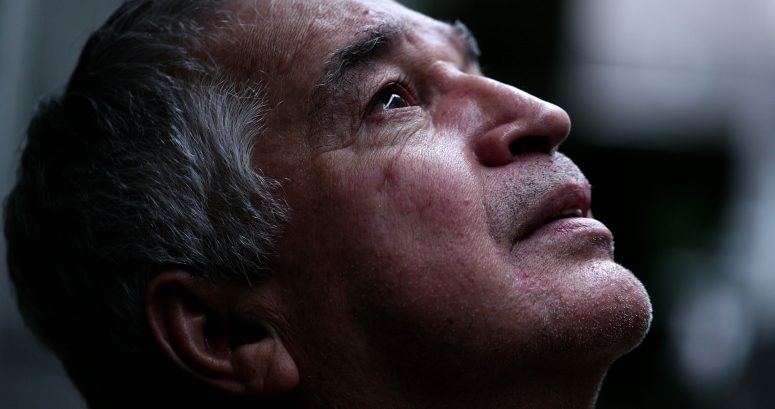
Courtesy Shutterstock
I often catch my breath while seeing an otherworldly landscape or snow covered mountain, hearing moving music, or witnessing a simple act of kindness. I love that feeling, which researcher Dacher Keltner describes as “Awe—the feeling of being in the presence of something vast that transcends your understanding of the world.”
Keltner and his team at Berkeley have studied awe for a long time. What they found is this: Not only is awe a compelling feeling for romantics like me, it makes us happier, healthier, and humbler in the following ways: Continue reading…
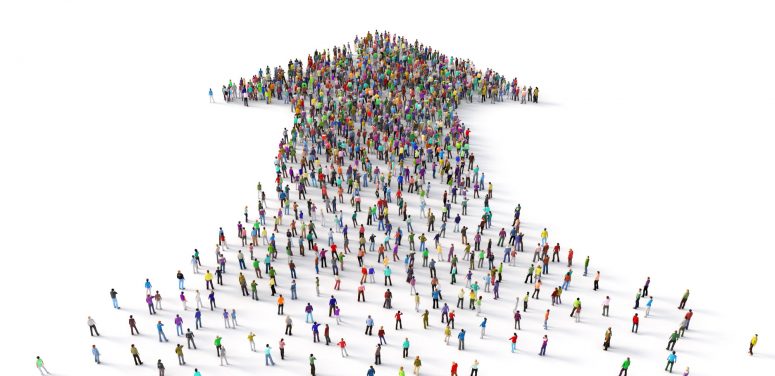
Courtesy Shutterstock
I was recently talking to an ultra-liberal friend who admitted that today is a better time to be born than any other time in history, regardless of race, gender, and let’s say 99% of nationalities. While the world is far from perfect, it is a better place for the greatest number of people. That includes higher life expectancies, education, and literacy rates, and remarkably less death, disease, poverty, war, crime, dictators, and injustices.
Nevertheless, this same friend expressed fear that acknowledging said progress might encourage conservative society to stop making progress. I argued that most conservatives have made social progress, albeit slower than liberals, since forever (especially since the industrial revelation). Furthermore, there’s no evidence suggesting that conservatives will suddenly stop once a tolerable threshold of social equality has been reached. And yet I suspect this liberal fear exists in more than just my friend.
I don’t know the exact number, but I do know many outspoken liberals feel the need to qualify any acceptant that the world has gotten better. They almost always couch it with, “Yeah, but we still have a long way to go!” I sense many of them share this fear that by acknowledging our social progress, we’ll suddenly stop perfecting the other flawed areas of social inequality.
To get to the bottom of what I believe is an unfounded fear, I interviewed several people on the subject. This is what I learned. Continue reading…
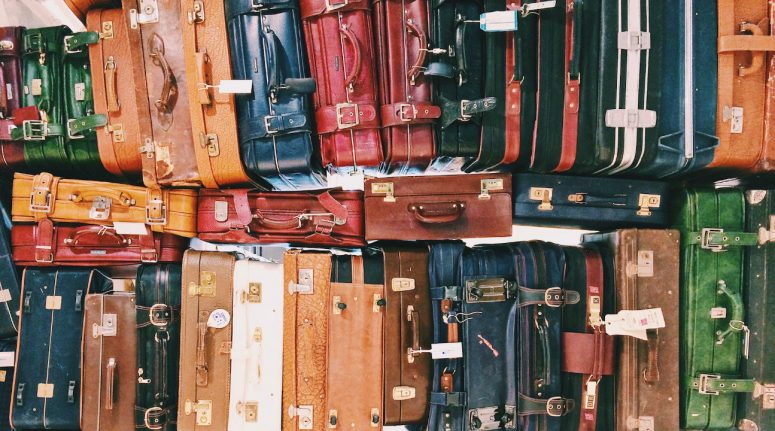
Courtesy Unsplash
My latest for Paste: “How might travel change this year? Where are people going this year? And how can you save a buck on your next trip while moving about the planet?
“To find out, the folks at Expedia, the world’s largest travel company, surveyed 2000 people and paired their responses with the most recent booking data. Although not a foolproof way to predict the future, this approach offers an inside look at the purchasing behavior and changing tastes of travelers.
“According to the data, this is what we’re in for this year.” Continue reading…
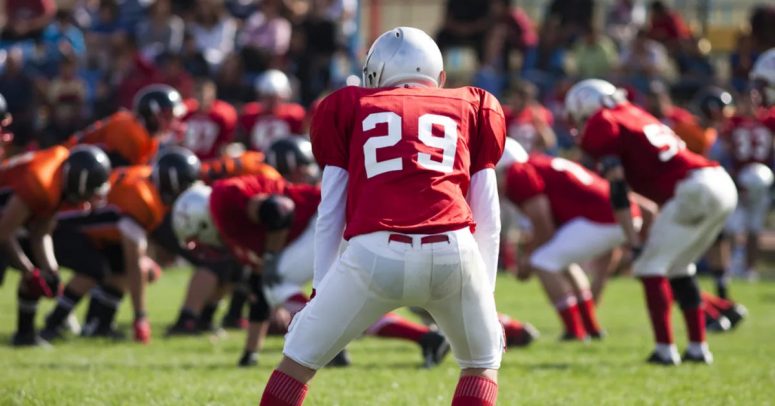
Courtesy Shutterstock
Much of my family enjoys watching football with me in the fall and winter. It’s the most TV we watch all year.
Between both college and pro, we’ve enjoyed a lot of exciting games this year. But one in particular stands out. And not because of the result.
Midway through the season, Washington (where my wife is from) nearly pulled off an incredible upset of a highly ranked team. It was back and forth football for a full four quarters. Really great stuff.
On the very last play, however, Washington lost.
That’s not the story that matters, though. A few moments after the game ended, my son Jack turned to his mother and I and said, “That was a close game. Good job to the team that won.”
I was so proud of him for not confusing loyalty with entertainment. Better yet, he’s already beginning to understand what it means to be magnanimous, an elusive trait that makes the world a better place.
I was proud of the example he set and hope to demonstrate the same attitude whenever my favorite team loses.
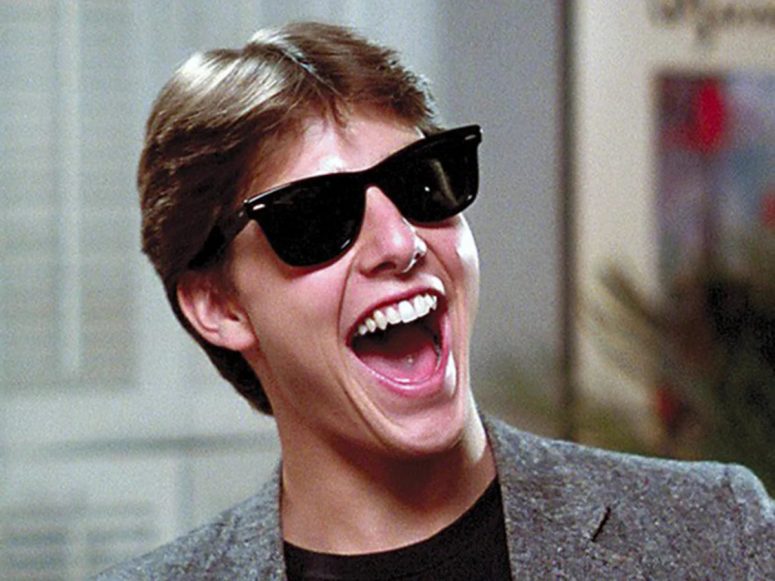
Courtesy Warner Bros.
I’ve been writing full-time on a professional basis for almost two decades. In that time, I’ve written two books, hundreds or reports, and thousands of articles.
To publish that amount of work, I’ve also committed tens of thousands of mistakes. Maybe more. My last book alone contained thousands of errors after my editor bled all over it. On top of that, I was born with bad diction, and am subjected to nasty hate mail after some of my mistakes.
Why am I telling you this?
Because in both life and writing, mistakes are an everyday thing. In fact, the latter happen every minute. That’s because language and communication are incredibly complex, even for professionals like me who get paid to write fewer mistakes than you do. The sooner you accept, if not embrace, mistakes, the better writer you’ll be. Continue reading…

Courtesy Shutterstock
I spent a few hours recently researching ways to improve my enjoyment of “home sweet home.” This is what I came up with, according to the latest research: Continue reading…

I loved these recent profile of Google Reviews written by Will McCarthy and hope you do too.
These were my favorite sentences: “Google Reviews is like having millions of friends around the world who can give you a reliable recommendation on literally anything… I have lived, these reviews say, I have fought and struggled and cried in the face of beauty. I have felt pain, and I have been to Taco Bell and it was only average.”
See also: One-star reviews of National Parks
 Pay no mind to what some old people, many talking heads, and all fear-mongerers say. The world is NOT getting worse. It’s getting better, even under controversial and sometimes divisive climates.
Pay no mind to what some old people, many talking heads, and all fear-mongerers say. The world is NOT getting worse. It’s getting better, even under controversial and sometimes divisive climates.
These recent stats compiled by USA Today, Business Insider, Factfulness, and Vox Media offer irrefutable proof. For example:
- Life expectancy has doubled over the last century
- “The hungry” have been reduced to just 10% over the last 50 years
- More than 90% of Earth have access to clean water now, leading to 40% fewer sanitary deaths
- Fewer than 10% of people live in extreme poverty—the global economy has never been richer
- The world is historically less violent—fewer wars and 40x fewer murders. The little that remains is just more televised and promoted now.
- We are reducing pollution and are much more literate than ever before
- Individual freedoms and democracy has never been higher
- Societies are more open to more genders, races, and orientations than ever before
- Teen pregnancy is in decline
- Cancer mortality is dropping
- Child mortality is just 4%, down from 40% in 1800
- Child labor is just 10% now, down from over 70% in 1800
- U.S. high school graduation is at an all-time high of 84%
- Fear is more irrational in richer economies, so the richer we are, the more fear-mongering we engage in
- Although social progress is slower than some liberals like to admit, it is slowly marching on and improving
The glass isn’t half empty, readers. It’s measurable fuller than ever before. Although the world is still imperfect, it’s on the way up more often than not.
First published to blakesnow.com in 2018
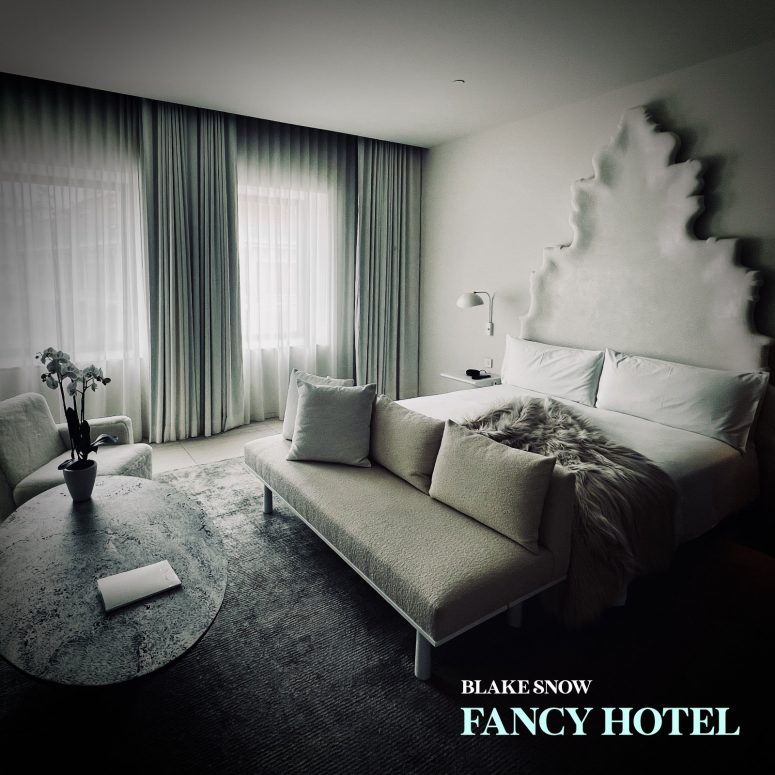
My new single, Fancy Hotel, released today on all major music stores: Spotify, Apple, Amazon, YouTube Music, YouTube, and more. It’s the lead single from my forthcoming third album, out later this year.
I wrote the song in the same hotel room I photographed for the cover art, while on assignment for Paste Magazine in Spain. It’s one of the darkest songs I’ve ever written. But since my optimistic self was the one writing it, the chorus is actually super uplifting. So I’m proud of the mixed feelings it captures, something all of us experience in our own headspace.
I’m also proud of the cover art, which is equally dark. But light is still beaming through the windows. Because there’s always hope. Lyrics after the break. Continue reading…

My latest for Paste Magazine: “It took a minute, but cruising is back. Although most liners halted their sailings over the last couple of years, all ships are now full steam ahead.
“The same is true of Celebrity Apex, the best-rated, recently launched ship from the ocean’s top-rated cruise line, according to passenger reviews. After being christened just before the pandemic, Apex basically sat unused for the better part of two years, before settling into its current Caribbean itinerary last fall.
“The week before Christmas, my family boarded Apex in fantastic Fort Lauderdale for a week of all-you-can-eat fun, island hopping (e.g. Key West, Cozumel, Grand Cayman), and sunny relaxation. Here’s what we liked most about the ship.”
Continue reading…
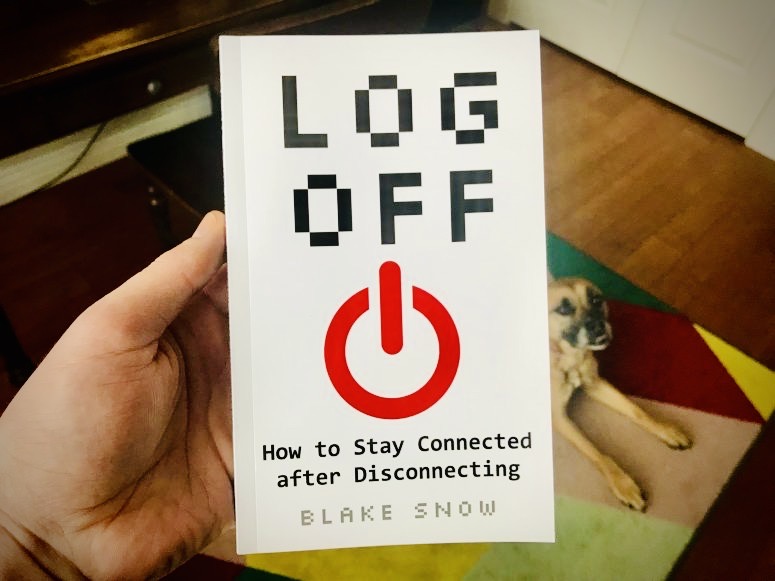
It’s been half a decade since I published my first book, Log Off: How to Stay Connected after Disconnecting. It sounds melodramatic, but that little book changed my life. I owe so much to the stories and research contained inside, as well as the rippling effect it created after publication.
Five years later, here are five things I learned after publishing the book: Continue reading…

Courtesy Shutterstock
Short answer: Figure out what’s abnormally expensive, and then don’t buy that thing.
Long answer: Think creatively about how to still satisfy your wants and or needs in a different way. After the price of brisket recently skyrocketed, for instance, I slow-cooked a roast instead and it turned out pretty good! I’d say maybe 80% like real brisket and would eat it again. Plus, it was a lot more palatable to pay $15 for a hunk of BBQ instead of $55.
My wife and I do the same with travel. We try to book during low season when prices are less. This requires a flexible schedule or some additional sacrifices in time, but it’s a wonderful way to save on airfare, hotels, and tours.
In short, you gotta follow the “SUCC” framework if you wanna beat inflation:
- Substitute items or experiences (like roast for brisket or off-peak travel)
- Use existing resources in new ways (like credit card cash back points for new home decor)
- Conserve the little things that add up over time (cut out subscriptions that no longer delight you; these can add up quick and pay for things that still do)
- Coop with others around you to pool and or share resources (Not just Airbnb and Uber, but ask friends and neighbors if you can exchange or borrow things without imposing on their kindness)
Lastly, if you really love something and can still afford it, don’t overthink it. Just buy it.
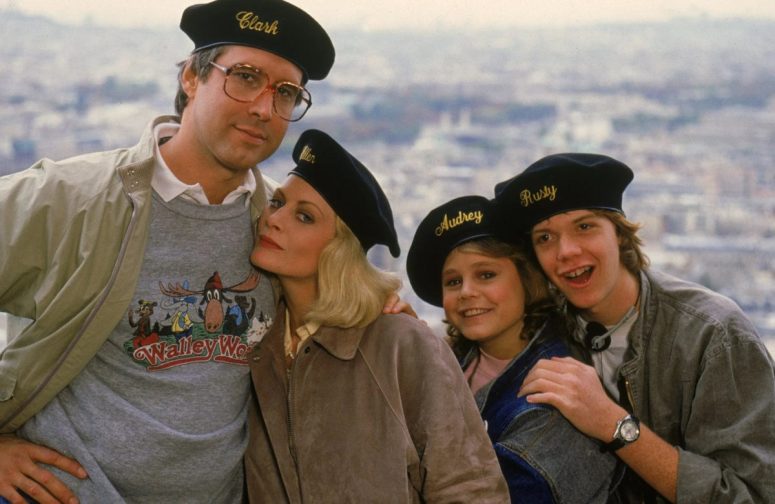
My latest for Paste: “Since yearly records first began in the 1960s, no other continent welcomes more traveling Americans than Europe. Roughly half the size of the US with almost an equal number of countries as we have states, Europe is a convenient, safe, and diverse way to expose yourself to a lot of foreign cultures (and languages) in a short amount of time.
Thanks to a strong dollar, Europe is also a lot more affordable now than it’s traditionally been. As with all continents, however, Europe does a lot of things differently than we do here at home. Whether you’ve visited before or are planning your first transatlantic visit this year, here are some of the bigger dissimilarities you need to understand.”
Continue reading…

Courtesy Adobe Stock
What characteristics do creative people cultivate that others do not? In my own life as a writer, author, and musician, these five characteristics have served me well: Continue reading…
Many years ago, I read a mind-bending book by Bill Bryson. But I did so a full decade after the best-selling author first wrote it. Surprisingly, I later learned that the book didn’t get as much coverage as his earlier travel books. “I gotta share this,” I said to myself. So I reached out to several newspaper editors with whom I worked with—none of which had covered the book—about doing a retrospective review. Their collective reply, “Sorry, we don’t review old books.”
In other words, modern journalism only touches recent “news,” however you define that. In art’s case, that usually means weeks or months, and typically never more than a few months old. Journalism, you see, is built on helping readers process the recent world—in many cases without context to our past. It’s almost as if they’re saying, “You’re on your own for anything good that’s older than a year, but we’ll help you find the good stuff coming out of the firehose right now.”
That’s negligent at best, narrow-minded at worst.
As journalists, how can we inform society if we fail to critique some of our “greatest hits” from the past? The answer is we can’t. While recent happenings have always been the focus of “news,” it shouldn’t come at the expense of celebrating, elevating, or criticizing some of humanity’s most viral ideas and works, especially for newer generations who weren’t around when that once important news dropped off the feed.
There must be a better way. While it’s impossible for news to cover everything that’s ever happened, that doesn’t mean it shouldn’t revisit the more profound ideas that are still relevant.
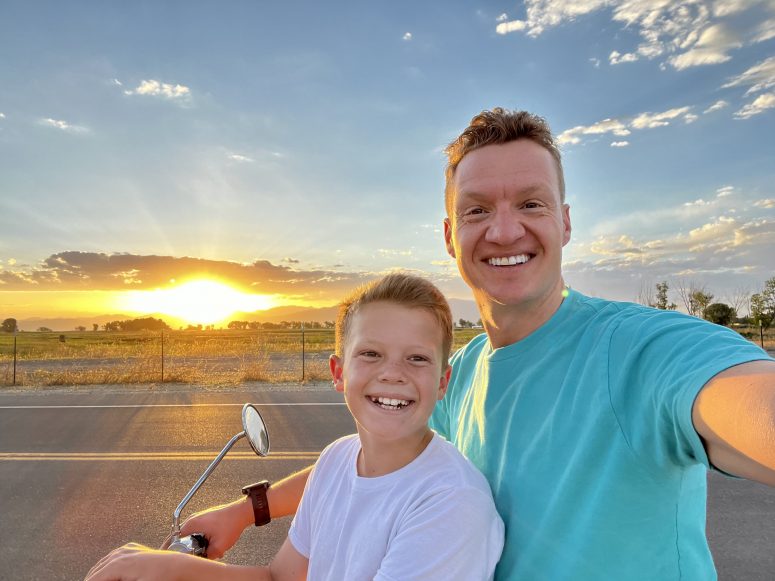
Kids say the darnedest things. But their mental fortitude is even more impressive.
After recently losing his first basketball game by a whopping 12 buckets, my son Max (pictured) turned to one of his teammates and said, “It’s okay—we’re still cool.”
His mother and I laughed, of course. But it was obvious this friend was familiar with the sentiment. We asked Max about it later. He said he and his friends often say this to each other whenever they screw up.
I love this mentality. We all make mistakes. But that doesn’t diminish our value, Max says. Brilliant!
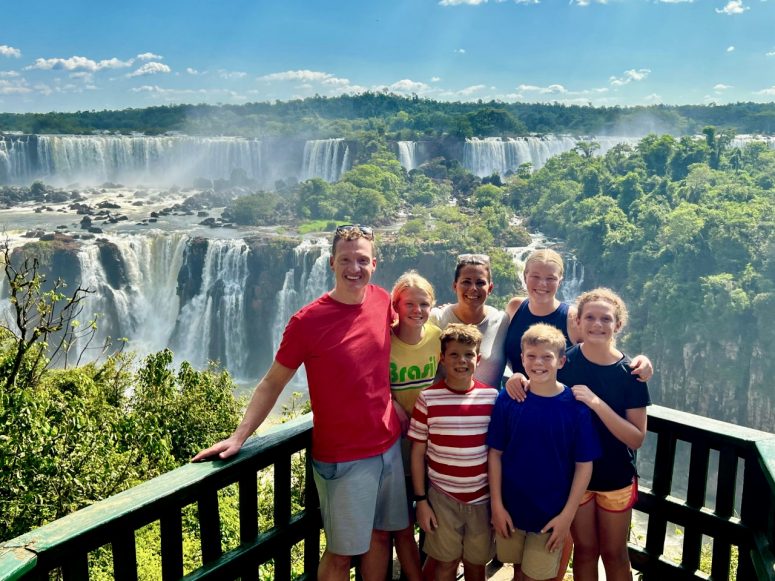
My latest for Paste Magazine:
It doesn’t make any sense. I’m looking at the most beautiful city I’ve ever visited on six different continents. That city, Rio de Janeiro, is a masterpiece of God, Mother Nature, or whatever force created it. Its lush mountains and iconic beaches are the crown jewel of Brazil, a country that includes two “Wonders of the World,” the world’s largest rainforest, and more natural and cultural diversity than any other country in Latin America.
Despite this, Brazil doesn’t even crack the list of the top 50 most-visited countries in the world. Continue reading…
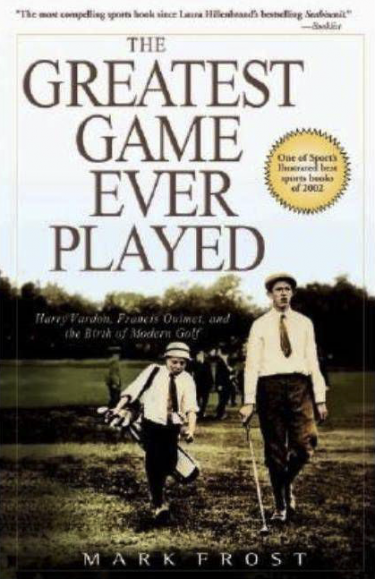 I recently finished The Greatest Game Ever Played by Mark Frost. It tells the inspiring true story of Francis Ouimet and his endearing, 10-year old caddie winning the US Open in 1913 as an amateur and first American-born player to do so. It was a wonderful account and inspiring to boot, especially since all of us are amateurs in most areas of our lives. If Ouimet can do it, any of us can!
I recently finished The Greatest Game Ever Played by Mark Frost. It tells the inspiring true story of Francis Ouimet and his endearing, 10-year old caddie winning the US Open in 1913 as an amateur and first American-born player to do so. It was a wonderful account and inspiring to boot, especially since all of us are amateurs in most areas of our lives. If Ouimet can do it, any of us can!
Rating: ★★★★☆ These were my favorite passages: Continue reading…
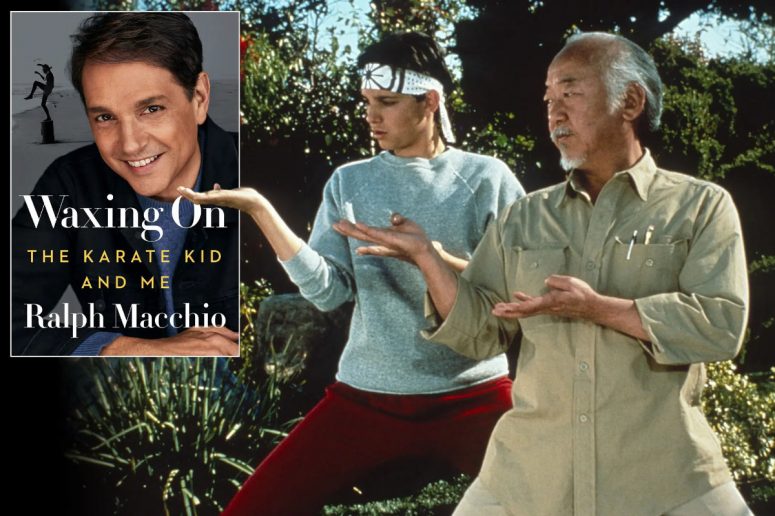
I recently finished Waxing On by Ralph Macchio. It’s about his celebrity and often stuck-in-time life as the Karate Kid. As a huge fan of the original movies, I thought it was a fascinating and entertaining read about how it all came together, and what effect the typecasted role continues to have on Macchio’s life.
Rating: ★★★★☆ These were my favorite passages: Continue reading…
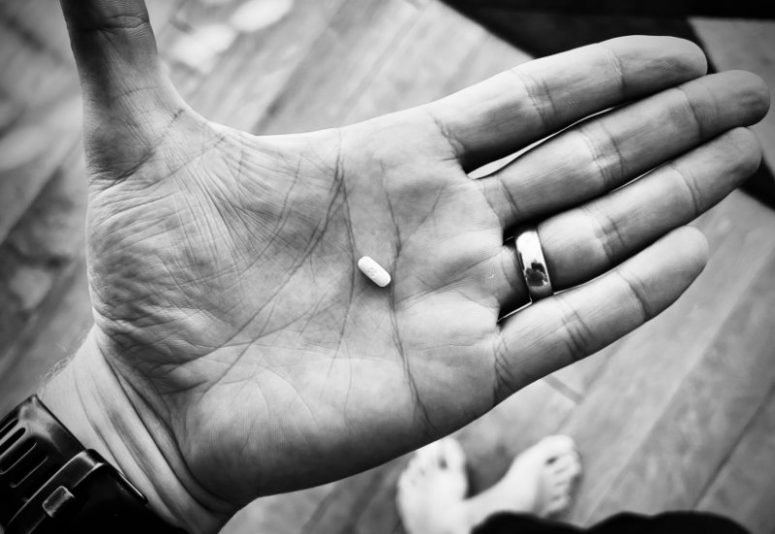
My latest for Lonely Planet and Paste:
Thanks for reading.














 Like many things in life, the island of Madagascar is a mystery. A mini continent off the southeast coast of Africa, it features all kinds of crazy animals that shouldn’t be there.
Like many things in life, the island of Madagascar is a mystery. A mini continent off the southeast coast of Africa, it features all kinds of crazy animals that shouldn’t be there.


 After recently learning that a family member was suffering from an eating disorder, I read
After recently learning that a family member was suffering from an eating disorder, I read 

























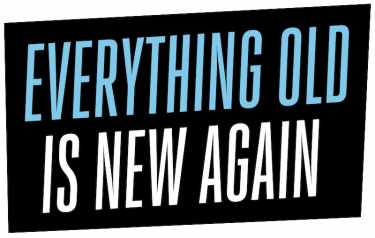


 I recently finished
I recently finished 
